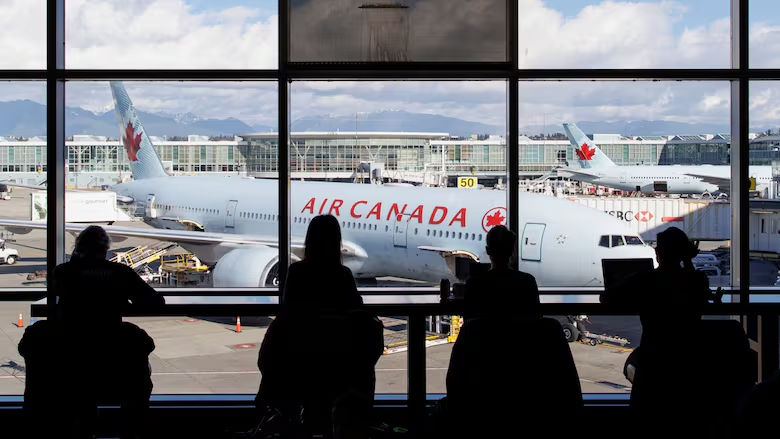A senior Air Canada pilot is sounding the alarm over a growing shortage of air traffic controllers (ATCs) in Canada, warning that the issue is already disrupting flights and could escalate into a broader aviation crisis if not urgently addressed.
Captain Doug Morris, a veteran pilot with over 30 years of experience and a spokesperson for Air Canada’s pilot corps, has raised concerns that chronic understaffing at NAV Canada—the country’s air navigation service provider—is contributing to significant delays, added fuel costs, and safety concerns in Canadian airspace.
In a recent interview with CBC News, Morris described the situation as “serious and getting worse,” particularly at key air traffic hubs such as Toronto, Vancouver, and Montreal, where staffing shortfalls are straining operational capacity and forcing airlines to alter flight schedules and reroute aircraft.
“We’re facing longer flight times, unnecessary holding patterns, and reduced efficiency across the board,” Morris said. “This isn’t just an inconvenience—it’s becoming a structural problem for Canada’s aviation industry.”
NAV Canada, the not-for-profit entity responsible for managing Canadian airspace, has acknowledged the shortage but insists it is taking steps to rectify the issue. In a written statement, the agency confirmed that “unprecedented retirements, training delays, and pandemic-related hiring freezes” have all contributed to current staffing challenges.
The organization has pledged to accelerate recruitment and training of new ATCs, but industry insiders say the process can take up to three years to fully certify a controller—meaning the effects of the current shortfall could persist well into 2026 or beyond.
NAV Canada employs approximately 1,800 air traffic controllers, but internal sources say the system is running well below optimal staffing levels, especially in high-traffic control centres. The situation has been exacerbated by a wave of retirements and resignations, as well as burnout from those forced to work overtime to cover gaps.
Morris and other industry experts are calling on the federal government to treat the issue as a national priority, warning that continued delays and inefficiencies could erode consumer confidence and damage Canada’s competitiveness in global aviation.
“This is about maintaining safety and reliability in the skies,” Morris emphasized. “We need immediate investment, regulatory flexibility, and long-term planning.”
Airlines have also begun lobbying Ottawa to act, urging increased funding for NAV Canada and streamlined pathways for training and certifying new air traffic personnel. They warn that failure to address the issue could disrupt Canada’s post-pandemic aviation recovery, especially during peak travel seasons.
In the meantime, passengers are already feeling the impact. Complaints about flight delays and cancellations have surged, particularly during holidays and weather disruptions, when the system is least able to cope. Some travelers have reported missing connections and experiencing multi-hour waits on the tarmac, often without clear explanations from airlines or ground staff.
In addition to economic costs, the shortage raises safety concerns. Aviation safety experts note that overburdened controllers may experience fatigue or increased error rates, potentially compromising the high safety standards Canadians expect.
The Air Canada Pilots Association has urged Transport Canada to increase transparency around the crisis and work collaboratively with NAV Canada, airlines, and unions to develop a national workforce strategy for air traffic control.
For now, the industry remains in a holding pattern—waiting on action, training new recruits, and hoping that the strain on Canada’s aviation infrastructure does not deepen before solutions are fully in place.
As Captain Morris put it: “The skies are busy, and the controllers are the invisible backbone keeping everyone safe. Without them, the entire system starts to fray.”
Source: CBC News



